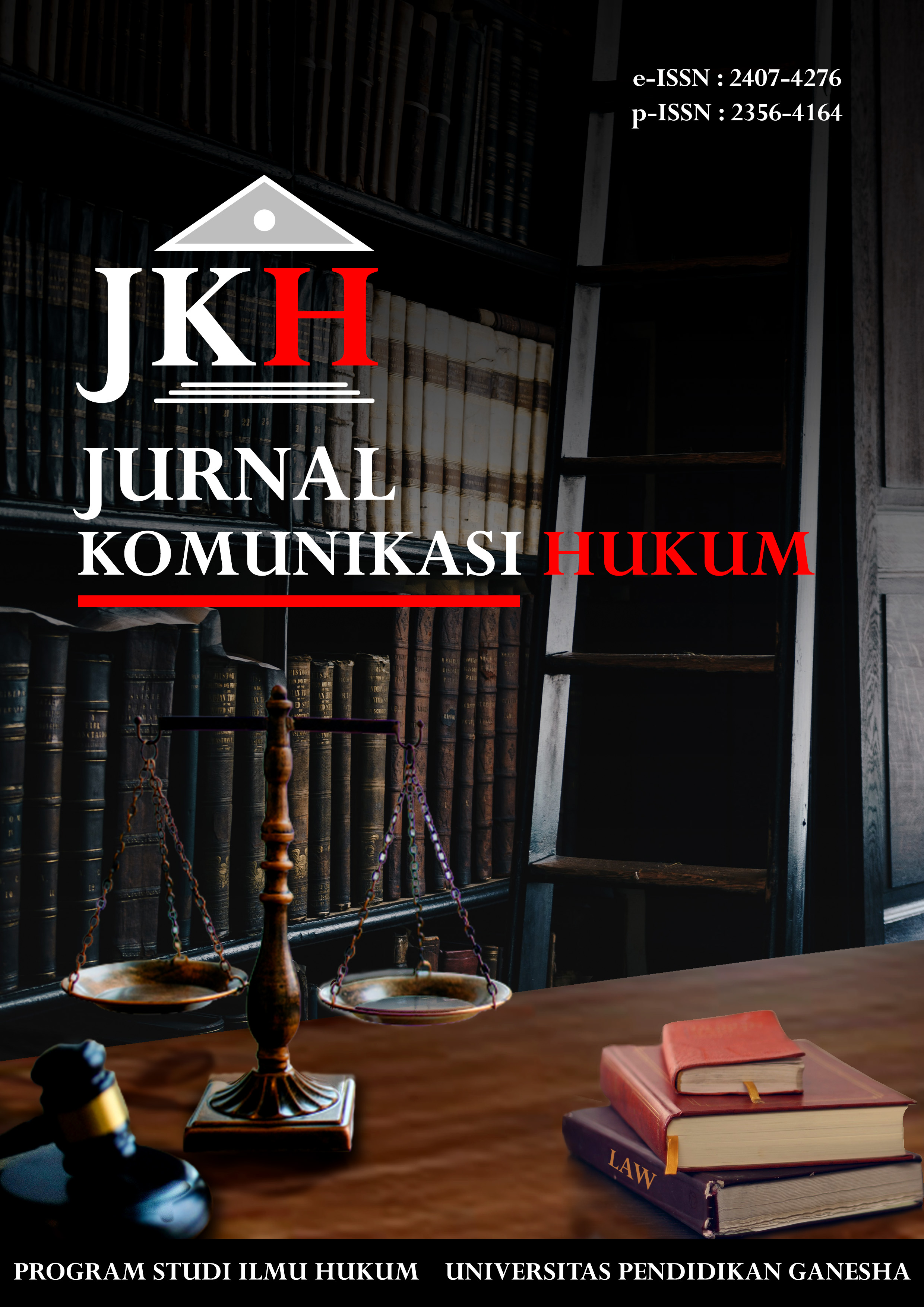Criminal Control for the Distribution of Pornographic Content on the Internet: An Indonesian Experience
DOI:
https://doi.org/10.23887/jkh.v7i2.39662Abstract
The unlimited use of Information Technology (IT) has made cybercrime accessible to everyone. Technology can be very useful for daily needs, but on the other hand it can also be used irresponsibly by certain parties such as the distribution of pornographic content. The purpose of this article is to find out the regulations regarding pornography in Indonesia, to analyze the spreaders of pornographic content based on Indonesian positive law and to analyze the penalties for spreading pornographic content based on positive law in Indonesia. This research uses ‘doctrinal legal research’. Sources of legal information use primary legal materials (regulations and relevant documents) for further qualitative analysis. The approach used is ‘statutory and conceptual’ to help solve the problem in this research. The results showed that law enforcement officials such as the police and prosecutors prefer to use Law Number 19 of 2016 concerning Amendments to Law Number 11 of 2008 concerning Electronic Information and Transactions and Law Number 44 of 2008 concerning Pornography to ensnare perpetrators. spreading pornographic content on the Internet which is considered more obvious and appropriate to be used as a legal basis to ensnare spreaders of pornographic content on the internet. Perpetrators can be sentenced to punishment is imprisonment and/or a fine as regulated in the law.
Downloads
Published
How to Cite
Issue
Section
License
Authors who publish with this journal agree to the following terms:- Authors retain copyright and grant the journal right of first publication with the work simultaneously licensed under a Creative Commons Attribution License that allows others to share the work with an acknowledgement of the work's authorship and initial publication in this journal.
- Authors are able to enter into separate, additional contractual arrangements for the non-exclusive distribution of the journal's published version of the work (e.g., post it to an institutional repository or publish it in a book), with an acknowledgement of its initial publication in this journal.
- Authors are permitted and encouraged to post their work online (e.g., in institutional repositories or on their website) prior to and during the submission process, as it can lead to productive exchanges, as well as earlier and greater citation of published work (See The Effect of Open Access).
Authors who publish with this journal agree to the following terms:
- Authors retain copyright and grant the journal right of first publication, with the work [SPECIFY PERIOD OF TIME] after publication simultaneously licensed under aCreative Commons Attribution License that allows others to share the work with an acknowledgement of the work's authorship and initial publication in this journal.
- Authors are able to enter into separate, additional contractual arrangements for the non-exclusive distribution of the journal's published version of the work (e.g., post it to an institutional repository or publish it in a book), with an acknowledgement of its initial publication in this journal.
- Authors are permitted and encouraged to post their work online (e.g., in institutional repositories or on their website) prior to and during the submission process, as it can lead to productive exchanges, as well as earlier and greater citation of published work (See The Effect of Open Access).












